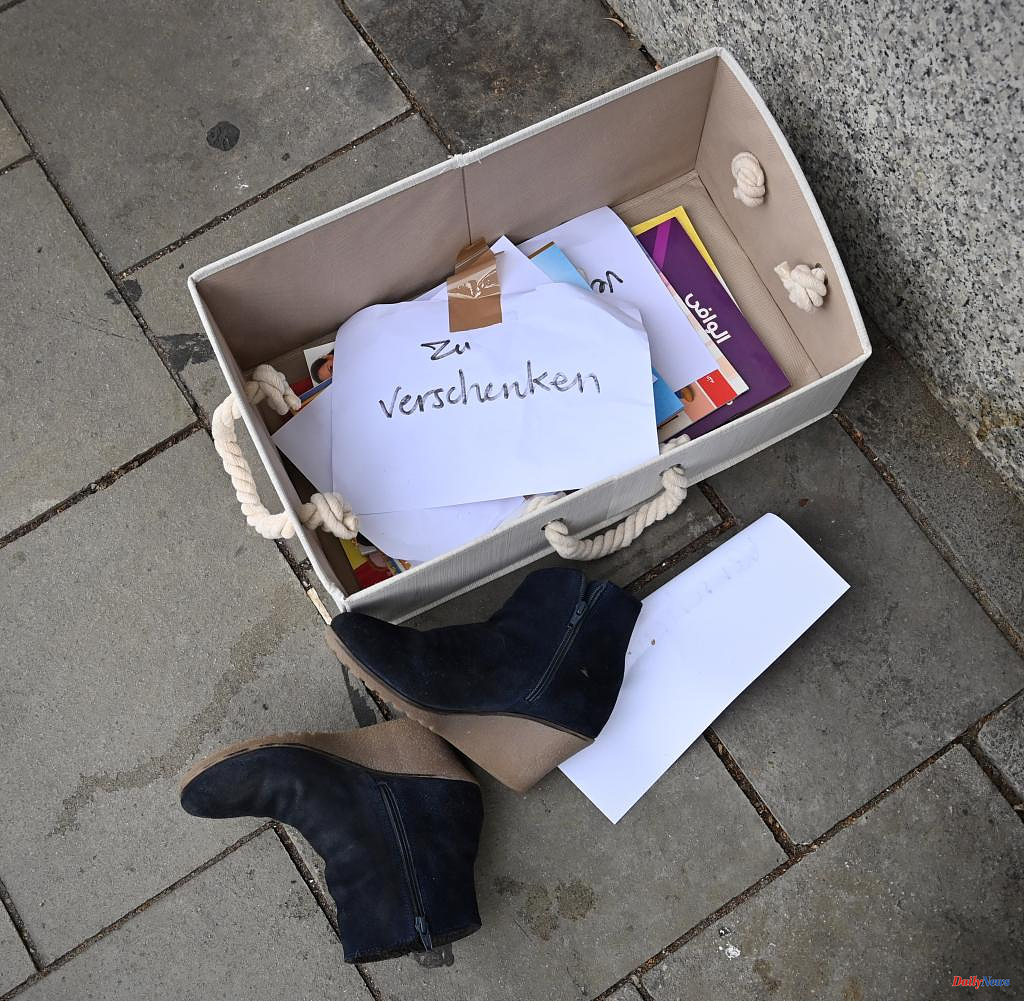In a German city: A very run-down junkie guy bangs his fists on an old computer screen from which he wants to extract some valuable piece of raw material. The man wrapped his hands with makeshift scraps of cloth. Nevertheless, they bleed and although the sidewalk is already filled with glass splinters for meters, the poor man only gets closer to his goal with difficulty.
Phenomena like this are the dark side of the parallel economy that has established itself in German metropolises under the sign of the “To give away” sign. People like to get rid of their superfluous items by simply putting them on the street and offering them to take away.
This can lead to small treasures finding a loving new owner. I myself owe that sideline a fine scholarly edition of the plays by English comedians who traveled through Germany in the 17th century, a kitchen table, a WMF knife stand, and a blue Hugo Boss sweater.
Much more often, however, the sign "For Giving Away" is only used as an excuse to get rid of completely unusable bulky waste: Old refrigerators, for example, that look as if they fell over while fecal samples were being stored in them. Or sofas on which someone seems to have died of a hemorrhage. The saying "Death is in vain" has never been more appropriate than here.
In principle, as the association of municipal companies explained to a colleague from "t-online", such giveaways face fines of up to 5,000 euros - it depends on how large or dangerous the disposed of goods are. Basic rule: Rusty machetes, oak wall units and radioactive fuel rods cost more than Jane Austen books or Playmobil figures. However, most regulatory agencies turn a blind eye if you follow certain rules. And at least in Berlin, the idea that anyone could bother investigating such crimes is illusory.
The problem of bulky waste disposal under the false flag of the “to give away” note is a result of increasing anonymization and neglect on the one hand and municipal austerity measures on the other. At least in the west, it used to be common for bulky waste to be picked up free of charge a few times a year from the previously mentioned districts. They put the stuff on the street the day before. Students or other low-income people swarmed out and helped themselves. Often only half were there when the garbage trucks came. But the remaining scrap was gone as soon as Team Orange left and didn't rot away for years.
These bulky waste days were a big party. I still own a mid-century magazine rack that I found that way 30 years ago. Anyone who didn't live before the municipal garbage revolution doesn't know anything about the sweetness of life.












